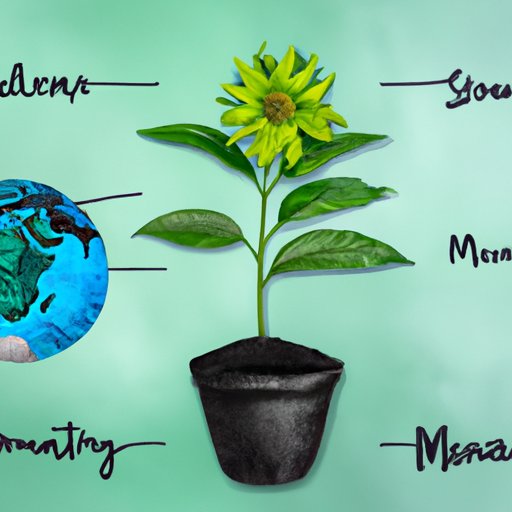
Introduction
Narcissism is a term used to describe a personality disorder characterized by an inflated sense of self-importance, a deep need for admiration, and a lack of empathy towards others. Individuals with narcissistic tendencies often believe they are unique and superior to others and may have trouble acknowledging their mistakes or shortcomings. While the concept of narcissism often brings to mind extreme cases, elements of narcissism can be present in anyone, leading to difficulties in everyday relationships and interactions.
Recognizing narcissistic tendencies is an essential first step towards developing healthier relationships with oneself and others. This article provides a guide to stopping narcissistic behavior and cultivating a more other-oriented mindset.
Recognize the Problem
It can be challenging to recognize narcissistic tendencies in oneself. Most people cannot admit when they are wrong or when things are not going as they should, which is why it can be challenging to recognize a problem and seek guidance towards change.
The first step in overcoming narcissism is to recognize the characteristics and behaviors of narcissists. Such individuals have a strong sense of entitlement and often lack empathy towards others. They may also manipulate and exploit others to get what they want. Signs that one may be a narcissist include a constant desire for admiration or attention, becoming agitated when not given special treatment, and expecting to be treated differently than others.
It is essential to take a step back, be honest with oneself, and self-reflect on behaviors and relationships: Do they revolve around you, or do you genuinely consider what others want and need?
Seek Professional Help
Working alongside a therapist can be a beneficial way to work towards overcoming narcissism. Many trained therapists specialize in this area and can provide techniques and guidance to unravel the unhealthy behaviours and underlying issues, which may have contributed to the narcissism. Moreover, a therapist can support the person while they work towards developing healthier relationships.
Several therapies, including psychoanalytic and cognitive-behavioural therapies, may be helpful in treating narcissism. In psychoanalytic therapy, the focus is on exploring past experiences and unconscious thoughts to discover the root causes of the narcissistic behaviours. Cognitive-behavioural therapy, on the other hand, concentrates on changing negative thoughts and changing behaviour patterns.
Searching for a competent therapist who specializes in treating narcissism is essential to making progress. You also need to ensure that you feel comfortable enough with the therapist and that your treatment goals align with those of the therapist.
Practice Empathy
Narcissists often find it challenging to see situations from others’ perspectives, yet empathy is key to developing healthy relationships.
Empathy can be understood as the ability to share and understand another’s feelings. It helps one to understand the consequences of their actions on others and to react more compassionately in any situation. Practicing empathy involves shifting the focus from oneself to the emotions and needs of others. A good way to start strengthening this skill is to practice active listening in conversation: really listen to what the other person is saying, and try to understand where they might be coming from.
Additionally, it can be helpful to visualize oneself in another’s position to more truly empathize with them. For example, consider how a particular comment or action might make you feel if it were directed towards you.
Developing empathy can make a significant difference in relationships with others and lead to greater personal satisfaction.
Learn to Accept Criticism
Another key issue that narcissists have trouble with is receiving feedback and accepting criticism. It can be difficult to hear one’s flaws and shortcomings, and narcissists may feel attacked or become defensive when confronted with such observations.
However, accepting criticism openly is vital for personal growth and in developing healthy relationships with others. Receiving constructive criticism requires being open to seeing oneself flawed and striving to correct those shortcomings. An excellent way to approach criticism is to seek out and ask for constructive feedback and take it as a suggestion for improvement, without it being a direct personal attack.
The ability to accept criticism and make improvements, along with demonstrating feedback-seeking behaviours, shows personal growth, maturity and healthy self-love, communicating that you are open to change and improvement.
Focus on Others
As you work towards overcoming narcissistic characteristics and developing other-oriented thinking, you can focus on cultivating kindness, compassion, and generosity. Focusing on others can be achieved in several ways, including volunteering or finding opportunities to support those in need in the community.
Cultivate kind thoughts and actions to those around you, including acts of kindness such as assisting with errands. Encouraging and supporting others in their goals and relationships can also be an effective way for developing humility and humility, the hallmark of healthy relationships.
Conclusion
In conclusion, curbing narcissistic tendencies is an ongoing process, which requires openness, self-awareness, transparency, and hard work. Recognizing the problem is the first and most crucial step, followed by seeking professional help, empathizing with others, learning to accept criticism, and finally, focusing on others’ needs. With hard work and effort, overcoming narcissistic tendencies can lead to improved relationships, higher emotional intelligence and greater personal growth.
Remember that recognizing the need for self-improvement is an essential trait, demonstrating that change is possible. We can work towards developing healthier relationships and becoming better people, and the outcomes are worth the effort.




